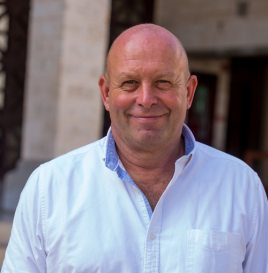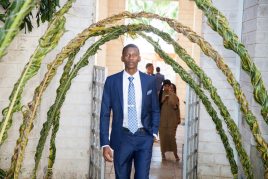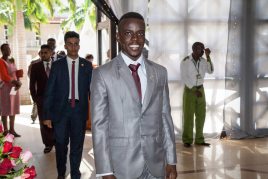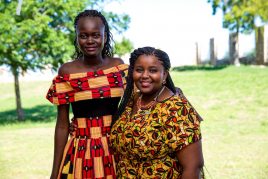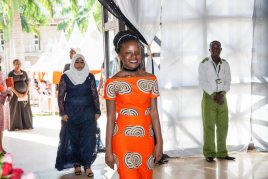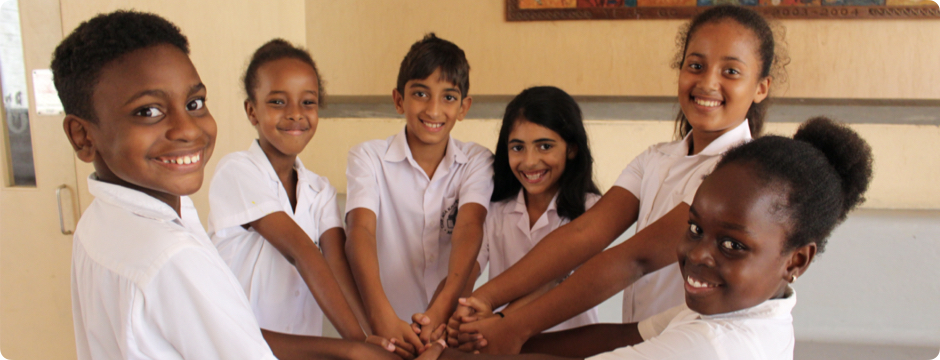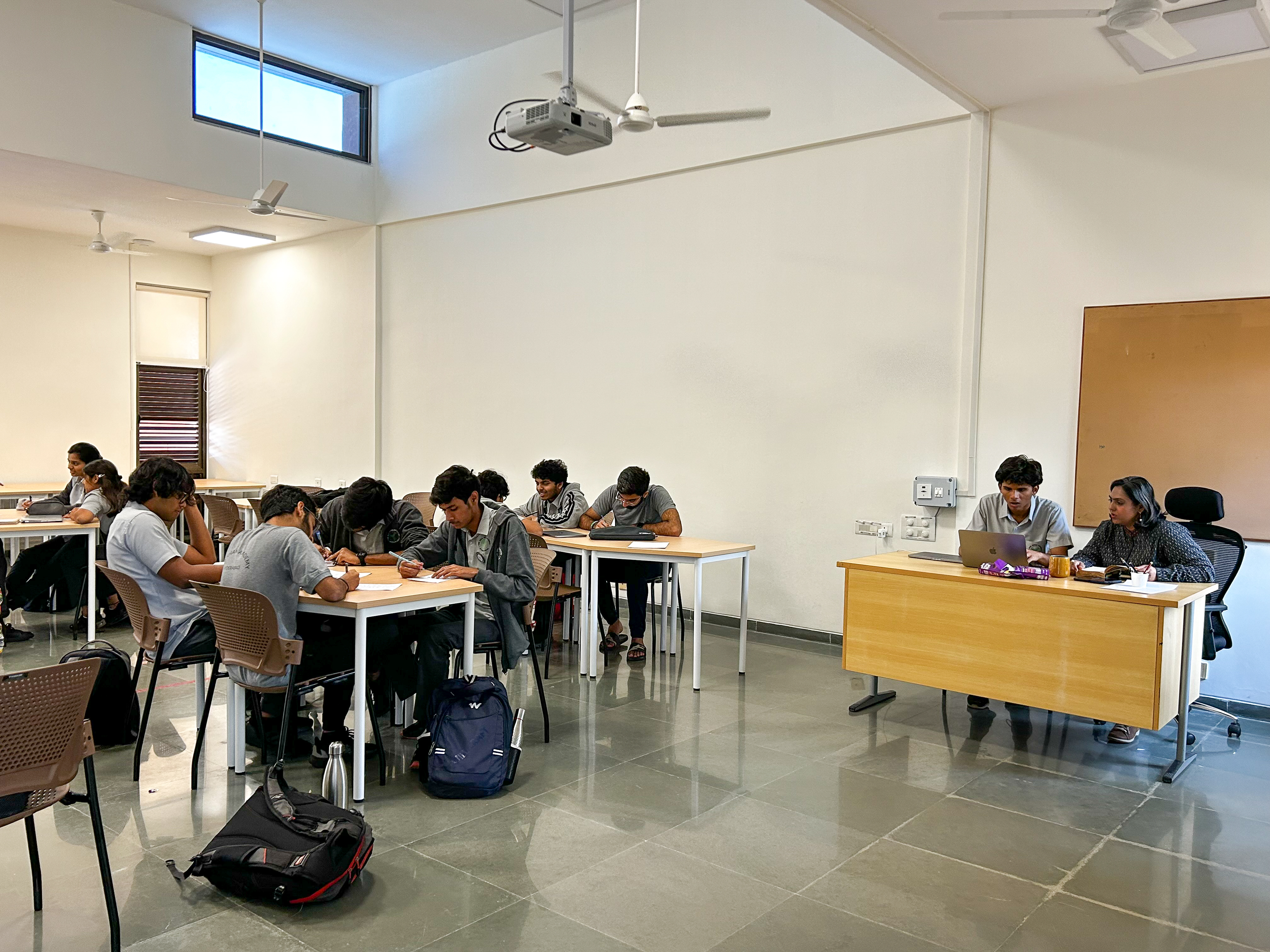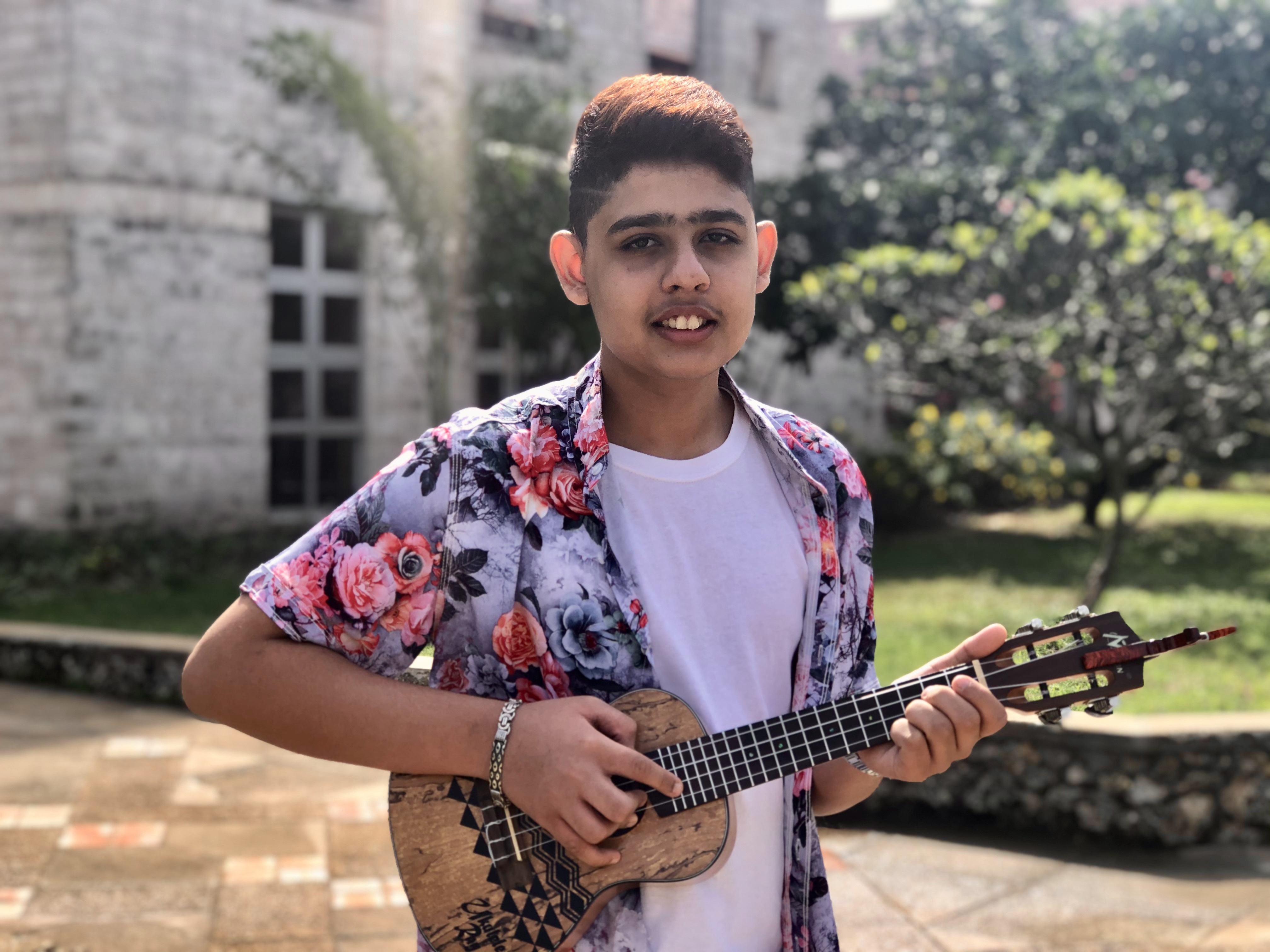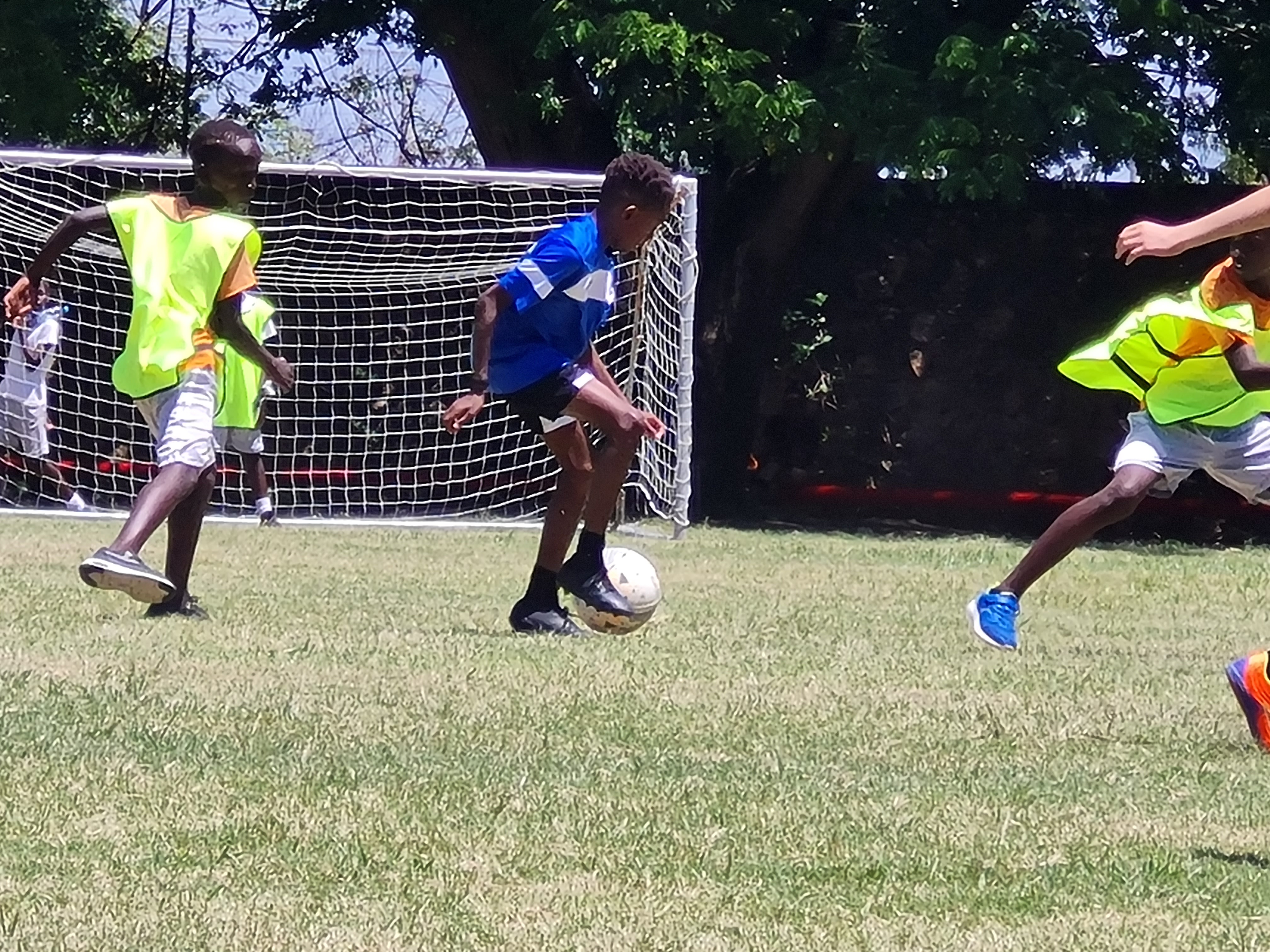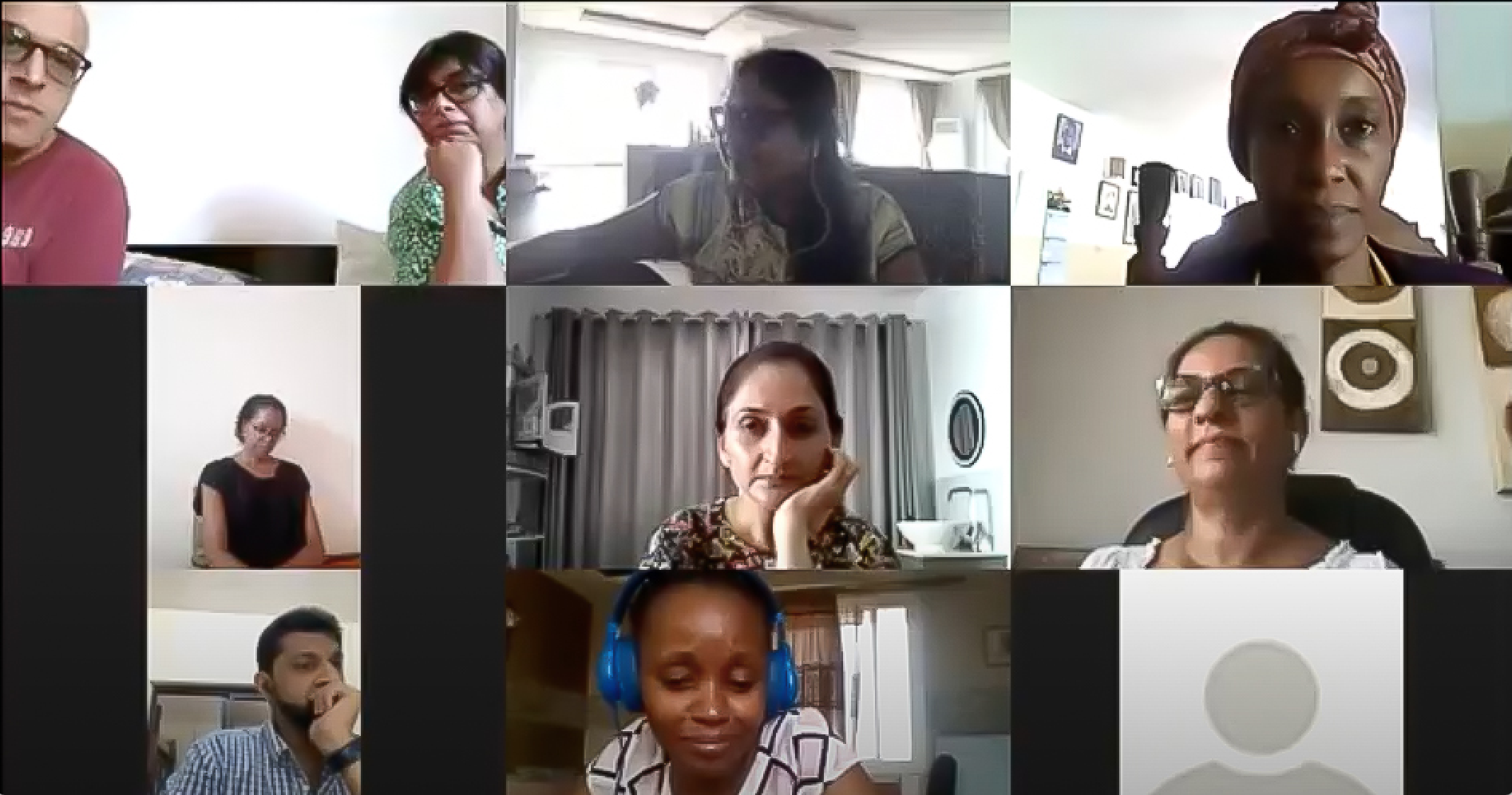Talent Identification Students: Creators of destiny
One of the great African presidents, Julius Nyerere, once said that the point of education was to turn creatures of destiny into creators of destiny. As the Dean of Admissions and Financial Aid at the Aga Khan Academy Mombasa, I have passionately led a Talent Identification Programme for nearly ten years now. The programme identifies “creators of destiny”, students in Year 6 in Kenyan government schools, in deprived socio-economic and educational areas of Kenya, who are academically able and show leadership potential. This May, seven of these students have fulfilled part of their destiny, in graduating from the IB Diploma Programme. Six of these seven students have secured a path to their next destination in life, by gaining access to some of the best universities in the world, on full scholarships. The Academy has guided and nurtured the students to have the confidence to become “creators of destiny”. The vision of His Highness the Aga Khan is that these students, as well as other members of the 2018 graduating class, will go out and be creators of change in their own communities.
As a teacher, the idea of educating a child for profit has always repelled me. The Academy’s inclusive culture was one of the factors that appealed to me when I first applied for the post at the school, as was the opportunity to lead the Talent Identification Programme. (Coming from a very working class background myself, I know that my parents would never have afforded me the opportunity to gain access to a secondary or higher education, without the assistance of the state system in the United Kingdom). From the outset, I can honestly say that not all teachers were supportive of bringing these students into the school’s residential programme. I did have a picture in my mind of how successful this could be from my work at previous schools, but I must admit, I did have sleepless nights about the scale, severity and scope of it all.
The assessment process in identifying these students has evolved and refined over the years. One very important aspect of innate leadership that is assessed is that of inferential thinking, the ability to make connections across different areas of knowledge. From this graduating cohort, I always remember one of the students exhibited exceptional ability in this area. Japheth Otieno, at the age of 11 then, referred to the inter-relation between governments causing difficulties in a problem solving activity when he mentioned, “Imagine that a Country A is helping Kenya with aid and money. Imagine that another Country B is an enemy of Kenya. Conflict may arise between Countries A and B, as there is suspicion over the reasons for this assistance to Kenya.” In the selection interviews, we look for students who are likely to question their world, have a keen sense of justice and morality, have good verbal communication skills and a sense of extra-curricular involvement. Japheth impressed me with his references to whether there was a multi-level universe or not and his passion for his kitchen garden, where he had initiated some preventative measures for protecting his plants. Japheth has now secured a place with the King-Morgridge Scholarship at the University of Wisconsin Madison in the United States.
I am delighted that this cohort sees the first student from the Ganze area, William Baya, graduating. I remember meeting William for the first time in 2011. At that time, the Kilifi County Governor reported widespread hunger in some parts of the county, especially for families living in the semi-arid areas. Learning in hundreds of primary schools in hunger-stricken parts of the country had been paralysed as the government dispatched emergency relief supplies. It was against this backdrop that we first met William, then a student at Vitengeni Primary School. William had already showed some leadership traits with him being involved as a scout commander and a school prefect. His school felt that he was a responsible and determined pupil. He mentioned about working hard in life so that he could target his goals – his motto at that time was “front ever, back never”. The self-drive William displays from adhering to this motto has guided him through the six years at the school and given him a full scholarship to attend Washington and Lee University in the United States. On learning of this, his father beaming with great pride said, “The Aga Khan Academy Mombasa has transformed my boy and that I am looking forward to him to come back and work for the community to repay the Aga Khan's contribution.”
One unique aspect of the Aga Khan Academy Mombasa, is its double heritage of world-mindedness and its proud East African identity. Since the inception of the school in 2003, Swahili has been compulsory for all students up to 14 years of age. His Highness recognised the need for young leaders to be able to communicate in their national language with other members of their community. (It is interesting to note that other non-national schools have only recently introduced Swahili into the curriculum for all students after a recent government directive). The Academy is at the forefront of academic thinking and is always forward thinking.
The development of the students in the school to “creators of destiny” is by no means left to chance. From this double heritage foundation, important concepts such as those of meritocracy, pluralism, ethics and other virtues and attributes that make up the students’ learner profile, have been integrated into all aspects of the curriculum. The students are allowed to run the risk, among other things, of failure because the privation of not succeeding can be an excellent teacher. Students are also given responsibility so that they can experience and learn from taking leadership roles. This is encouraged in every student. The students take charge in aspects of enrichment, academics and service, so that they are held accountable and answerable for their decisions, both when they get it right and when they fail.
Prudence Hainga after graduating this year will join the University of Edinburgh to study Political Science. Prudence reflected on what this scholarship meant to her and her community. “I want to realise my childhood dream of fighting injustice and corruption in Kenya. Having experienced and witnessed different levels of inequality in my country, I want to delve into a career path that will help me change what has become a detrimental routine in my country. The Kenyan political system is majorly defined by tribalism and inequality. Therefore, learning how political systems function and what others have done to ensure sustainable development as well as spread out opportunities for their citizens, will help me to decipher ways in which I could impact change in my country’s political system and rid Kenya of tribalism and greed. I am motivated to use my knowledge as a weapon against discrimination and inequality and work for a better Kenya – a Kenya that feels like home to all.”
These young men and women who have benefited from this progamme, did not have a great deal when they first came to the Academy, and their future was continually uncertain, with parents struggling to secure jobs, keep food on the table as well as educating their children. To see them grow and nurture and fulfil what was expected of them at this moment in time brings a lot of satisfaction. I have taught in many schools throughout the world, but there is something unique and special about this graduating class and other students at the school. The school recently had a visit from the representative from the International Baccalaureate Organization. On commenting on the school the one thing that stood out in my mind was his reference to the children here. He simply said that the children were “staggering”. These staggering students are helping to fulfil our mission for the Aga Khan Academy Mombasa that fits with building a better Kenya.
By Paul Davis
Golden Girl Emily Muteti Glows
The Daily Nation reports on the Coast Amateur Swimming Association (CASA) Championship which took place on 11th-12th February at the Aga Khan Academy Mombasa.

Gandhi Jayanti - Monday 2nd October 2017
Academy holiday to celebrate the birth anniversary of the “Father of the Nation.”
Excellence in Education
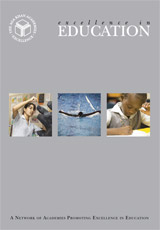
Ayaan Allarakhia: sharing his voice to inspire others
Since he was 4-years-old, Ayaan Allarakhia has had a passion for music that has shaped his whole life. Over the years, the 14-years-old Grade 9 student at the Aga Khan Academy in Mombasa, Kenya has developed and strengthened his musical and performance skills. Now, after writing and releasing his own song and music video, Ayaan is on a mission to spread his love for music to all.
Born and raised in Mombasa, Kenya, Ayaan, whose stage name is ‘Soul Prince’, sees music not only as a source of entertainment but as an essential part of everyone’s lives through different aspects. Ayaan especially admires the power music holds as it can strengthen relations amongst people and allow for an appreciation of various cultures.
“Music plays a vital role in my emotional, intellectual and physical life. It impacts the way I work, relax, behave and feel. Music also helps me bond with others in the sense that it helps me interact with other musicians around the world who share equivalent interests as me. Something I especially love about music is its power and how it can change the minds of millions if it’s addressed correctly in a rightful manner, and the power it has over one’s emotions.”
Gifted a toy piano by his parents for his fourth birthday, Ayaan has since continued and expanded his passion for music. Through the support of his teachers, classmates and school leadership at AKA Mombasa, Ayaan has performed at numerous school events, including a TEDx Talk at the Academy where he performed his original piece, I Take a Vow.
Ayaan said this support is also extended through the Academy’s music classes, resources and opportunities provided. Through this, he has been able to access different instruments and participate in music-related extracurricular activities and competitions, such as the Kenya Music Festival, in which he has won on numerous occasions. According to Ayaan, all of this has benefitted him as he progresses in the Academy’s International Baccalaureate (IB) programme and his school workload increases.
“The Academy has assisted me in many ways since I started music. Firstly, the Academy gave me a lot of different opportunities to perform at school assemblies and other events and share my ambition with others, which is to inspire the youth to participate in music activities. This also gave me the confidence I needed to express myself in front of large groups of people. And since managing my time and my school workload are some major challenges I face, I feel like my music career is still supported by the Academy offering music classes as a subject. Through this, I gain a lot of musical knowledge and learn about different music theories, which help me in understanding and building new tunes.”
Michael Lizotte, the Academy’s music director who joined this past August, said he has been able to sense Ayaan’s passion for music since the day he met him.
“When Ayaan first arrived in my Grade 9 music class, I remember hearing his lovely tenor voice and nice low range, which almost made me feel like I was listening to the famous singer, songwriter and musician Roy Orbison,” Michael said. “Ayaan is very inquisitive with anything about music, and we often meet to discuss styles, progressions, production and presentation. Ayaan really goes out well beyond classroom work and knows music will be part of his life’s work as he continues to study, learn and share.”
This was all just the beginning of Ayaan’s music career. In October 2020, as the COVID-19 pandemic was, and still is, impacting numerous lives and causing hardships in Kenya, Ayaan wrote and released his first-ever Swahili song called Unaweza, or ‘You can’. The song was accompanied by a music video as well, which has over 12,000 views on YouTube and was shot on the 18-acre campus of the Academy featuring teachers and students from the Academy.
“Because of the global pandemic, many people around the world are facing major problems socially, economically and mentally,” Ayaan said. “My target audience was the people in Kenya as a lot of people here were suffering economically and mentally. Therefore, I wanted people to know that this pandemic is just a passing cloud and to remind people that we can stay strong during this trying time.”
Since the release of Unaweza, Ayaan said he has received many positive responses, giving him the boost to pursue additional music projects and write more songs, which he said will be released soon. For his future, Ayaan hopes to continue broadening his music career and share his love for music with others.
“In the future, I hope to continue being a singer a songwriter, while also inspiring and encouraging people around the world to pursue music. My dream is to have everyone around the world engage with music, and share their emotions, culture and identity through music.”
Watch Ayaan’s music video for Unaweza below:
